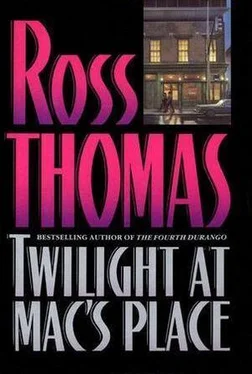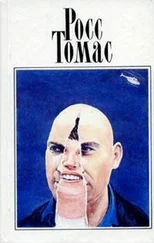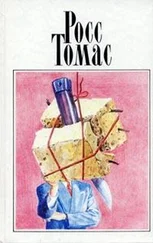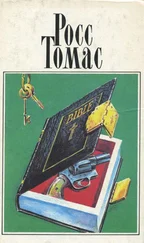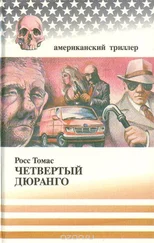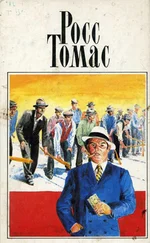“What’s so funny?” McCorkle said.
“Outraged fathers are always funny.”
“Who says I’m outraged?”
“Your choleric flush.”
“Care for a drink?” Haynes said.
McCorkle turned to stare at him. “Care? No. Need? Yes.”
“Scotch, vodka, beer, what?”
“Scotch.”
“Mr. Padillo?”
“Nothing, thanks.”
“You may need one after you hear about our threatening phone call.”
“Who from?”
“Since Erika took the call, I’ll let her tell it.”
After the drinks were poured and served, Erika McCorkle came out of the bathroom, wearing pants and over them the man’s white shirt, now buttoned except for the collar button and the one just below it. She went to the mini-refrigerator, removed a can of beer, popped it open and drank thirstily. She then turned to her father and said, “Okay. Let’s have it.”
McCorkle took another look around the room. “I suppose this is as good a way as any to spend a long Sunday afternoon. Your mother and I used to spend them like this in Bonn a hundred years ago. Usually out at her place in Tannenbusch. She lived in a one-room studio on the top floor of a Hochhaus with a view of the Rhine and the Drachenfels. Padillo always opened up on Sundays, so I’d drop by Fredl’s around noon with a bottle of wine or two and a couple of steaks. People still ate steak then. Fredl would read the papers, all six or seven of them, and after that we’d talk and fool around, then eat, and talk and maybe even fool around some more. Around six or seven I’d drive out to Godesberg to take over from Padillo. Sometimes she’d come with me.”
“She came with you most of the time,” Padillo said.
McCorkle nodded. “I guess she did.”
“You two weren’t married then?” Erika asked.
“Not even engaged.”
“How old was she?”
“Fredl? Twenty-four, twenty-five.”
“And you?”
McCorkle looked at Haynes, who was leaning against the windowsill again and wearing what seemed to be a look of polite sympathy. “Thirty-two, thirty-three,” McCorkle said. “Around in there.”
“This was the late fifties?”
“The late, late fifties.”
“You and Mutti never talk about it, do you?”
“Not much.”
“He’s not talking about it now,” Padillo said.
“Then what’s he saying?”
“For Christsake, Gurgles,” Padillo said.
“Don’t call me that.”
“Gurgles?” Haynes asked.
“When she was learning to talk,” Padillo said, “she couldn’t quite handle Erika McCorkle and it came out Erigga McGurgle. I called her Gurgles until she turned six and made me stop.”
“That still doesn’t explain what Pop was saying.”
Padillo shrugged. “Ask him.”
She turned to McCorkle. “Well, what was it — a roundabout invitation to join the grown-ups?”
“Who wants that?”
“What then?”
“I think it was a promise,” McCorkle said.
“What kind of promise?”
“That next time I’ll use the house phone.”
Wearing her sunshine smile, she hurried over to McCorkle, went up on tiptoe, kissed him and, still smiling, turned to Granville Haynes and said, “You can tell we’re a very demonstrative family.”
“If the demonstration’s over, maybe you should tell the family about the threatening phone call.”
She turned automatically to Padillo, as if he were the usual receiver of bad news. “Mr. Tinker Burns called,” she said. “About twenty or thirty minutes before you got here. He was looking for you and Pop. After I told him we didn’t know where you were, he asked — no, he told me to give you a message. I asked him to hold on while I got something to write with. But he said I wouldn’t need anything because his message was short and simple.”
“And was it?” Padillo said. “Short and simple?”
She nodded. “Mr. Burns told me to tell you that unless you let him look at Steady’s manuscript, he’s going to break your fucking necks. Or have it done.”
The four of them traded information for the next twenty minutes. Haynes and Erika went first with their account of Hamilton Keyes’s offer of $750,000 for all rights to the still unfound, unread memoirs of Steadfast Haynes. McCorkle and Padillo then described events leading up to their encounter outside Pong’s Palace with Mr. Schlitz and Mr. Pabst.
After that they went back over everything — poking at this recalling that and speculating about other just-remembered bits and pieces, most of them inconsequential, until they suddenly stopped when it became apparent they were getting nowhere. A silence began and lasted nearly two minutes before it was ended by Granville Haynes.
“Since Tinker’s obviously got his own deal going,” Haynes said, “I think I’ll drop by his hotel around two-thirty or three tomorrow morning and ask him what it is.”
“He won’t tell you,” Padillo said.
“His lies might tell me something.”
“Gestapo stuff,” Erika said.
It wasn’t much of a smile that Haynes gave her. “Tonight the knock on the door, tomorrow the national ID card. Where will it all end?”
“You tell me, sunshine.”
“Don’t worry about Tinker’s civil rights or liberties,” McCorkle told Haynes. “If you go knocking on his door in the small hours, he won’t open it unless it’s to tell you to buzz off.”
“Maybe he still thinks there’s such a thing as the right to privacy,” Erika said.
“Privacy vanished with the arrival of the driver’s license, the Social Security number and the credit card,” Haynes said.
“What about the right to be left alone?” she said.
“It no longer exists — if it ever did.”
“And you think that’s just wonderful, don’t you?”
“You haven’t a clue to what I think,” Haynes said.
“I think I’ll go home,” McCorkle said before his daughter could either reply or explode. He rose, looked at her and asked, “Coming?”
“You bet,” she said.
The four of them stood silently just inside the Willard lobby, waiting for Erika’s aging Cutlass to be brought around from the hotel garage. She stared at Pennsylvania Avenue through the glass door, ignoring the three men. They in turn ignored her silent rage.
When her car arrived, Haynes said, “I’ll call you tomorrow.”
“Why?” she said and pushed through the glass door.
McCorkle gave Haynes a small baffled smile and hurried after his ride home.
Padillo watched them go, turned to Haynes and asked, “Hungry?”
Haynes had to think about it. “Yes.”
“Let’s eat then.”
By 9 P.M. there were only a dozen or so diners left in Mac’s Place. The bar, however, was lined with drinkers, quietly stoking up for the Monday to come. Padillo chose a booth instead of his regular table near the kitchen. He and Haynes were just settling into it when Herr Horst slow-marched over to announce that Tinker Burns had been in twice, demanding to see either Padillo or McCorkle.
“Sober?” Padillo asked.
“Sober-mean.”
“Any message?”
“I believe he intends to do you both grave bodily harm.”
Padillo nodded, as if at old news, and asked, “What’s good tonight?”
“The duck,” Herr Horst said. “With wild rice and an exceptionally tasty cucumber and limestone lettuce salad.”
Padillo looked at Haynes. “You like duck?”
“Duck’s fine.”
“An aperitif, Mr. Haynes?” Herr Horst asked.
“A vermouth, please.”
Herr Horst looked inquiringly at Padillo, who said he’d like a sherry.
After the drinks were served and Haynes took his first sip of vermouth, he said, “Hamilton Keyes says he knows you.”
Читать дальше
